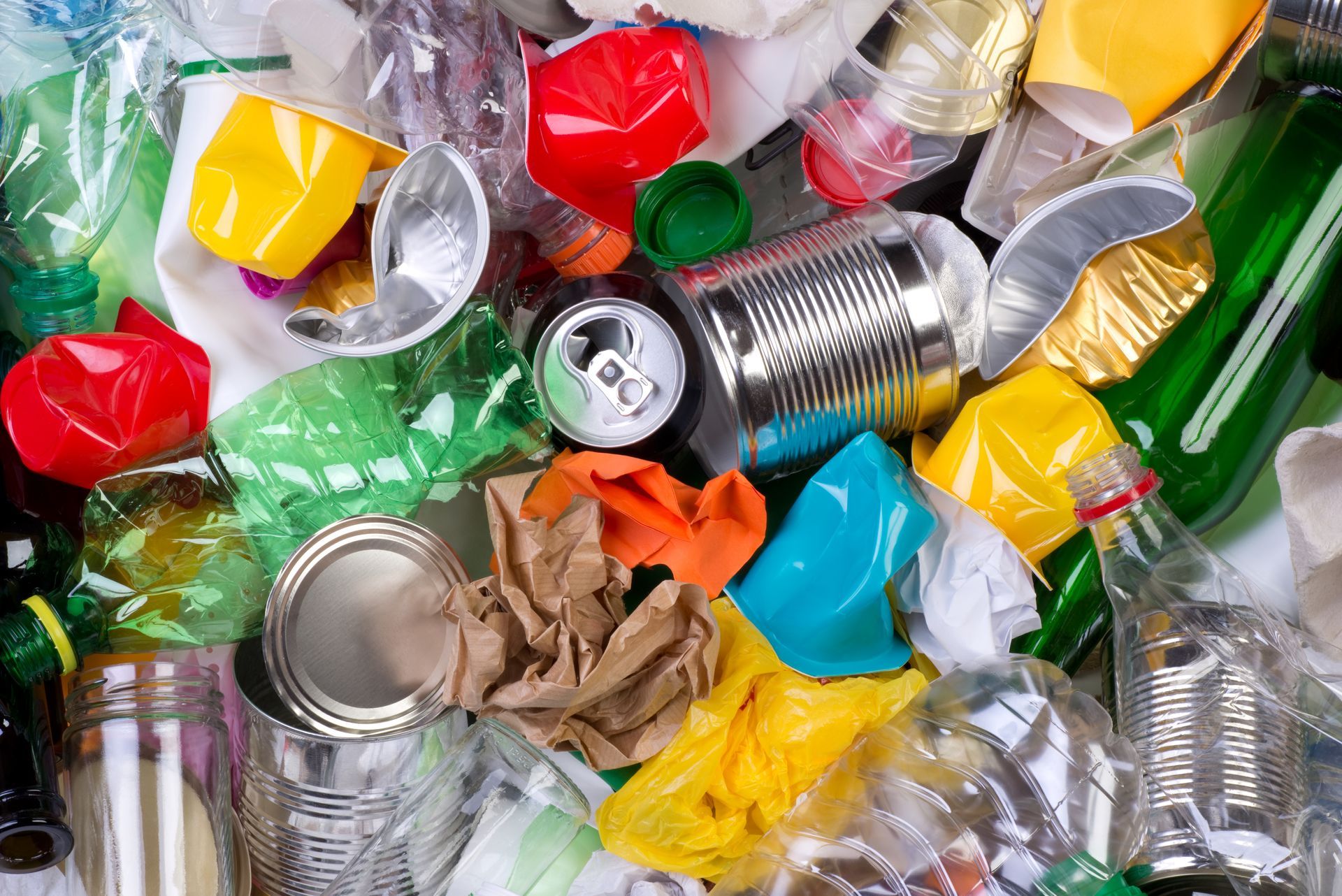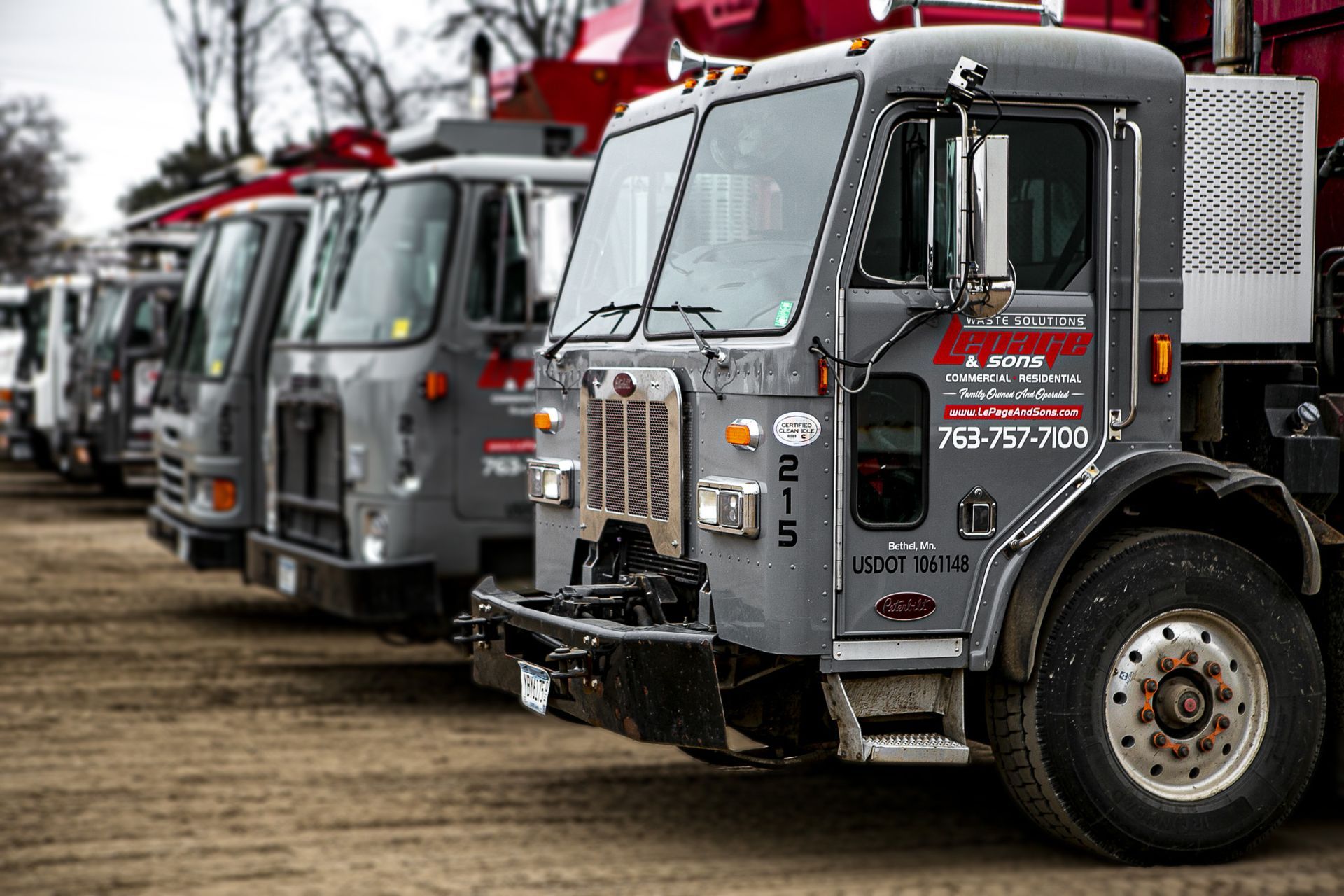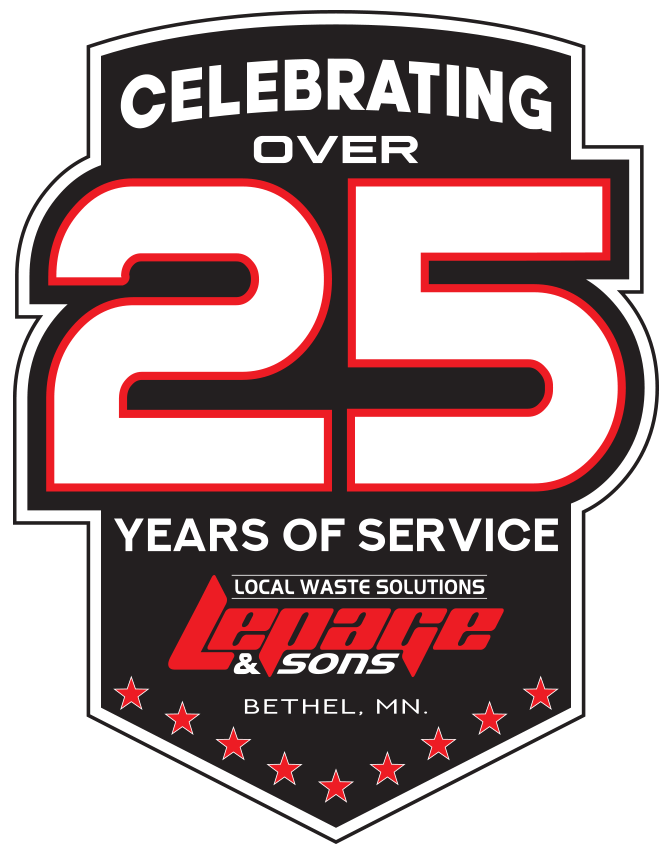Minnesota Commercial Recycling Laws
November 20, 2023
Clint LePage
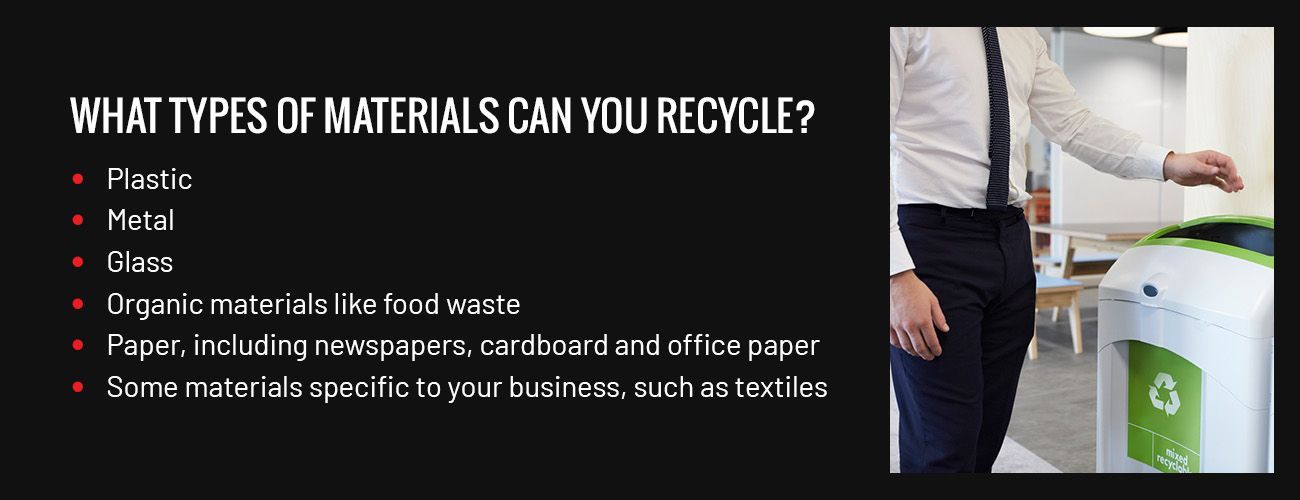
Recycling is a sustainable way to dispose of waste and have a positive impact on the environment. Recycling can generate profit while reducing harmful gas emissions and air pollution. Recycling can contribute to a more positive work environment, provide options for business grants and make your business more appealing for potential customers. However, there are various laws in Minnesota that your business must follow to avoid fines and other legal penalties. Keep reading to learn more about Minnesota commercial recycling laws to discover the requirements for your business.
What Are Minnesota’s Commercial Recycling Laws?
Buildings in Washington, Scott, Ramsey, Dakota, Carver, Anoka and Hennepin County are required to recycle. Recycling laws empower businesses to reduce their waste and support the recycling industry. Additionally, recycling can reduce tasks, allowing each company to save money by helping the environment.
The law requires commercial building owners to ensure facilities under their control collect three or more materials for recycling. This law applies to businesses providing services but does not apply to those that manufacture products. Businesses that must follow this law include:
- RV parks
- Hotels
- Multi-family housing
- Liquor stores
- Grocery stores
- Gas stations
- Real estate offices
- Financial and legal offices
- Dry cleaners
- Sports, entertainment and art venues
- Health care facilities
- Education facilities
- Wholesalers
- Utilities
- Transportation and warehouses
- Telecommunications
- Retail stores
- Repair shops
- Religious organizations
- Bars and restaurants
- Technical and professional services
- Post offices
- Nonprofit organizations
- Publishing and media firms
Even in locations where tenants contract personal trash hauling services, the building owner must ensure the facility is in compliance with recycling. This law includes multi-family housing options such as condos and apartments. Building owners can ensure proper recycling by creating a centralized collection area and providing flexible options to accommodate various tenant needs.
Commercial buildings are not required to place recycling collection bins in areas such as restrooms, lobbies or walkways. However, you can maximize your recycling efforts by making the collection available to everyone, including customers. Additionally, you can determine which materials to provide bins for by monitoring the materials employees and customers are throwing into the trash cans to maximize your recycling efforts.
Areas and Counties With Additional Regulations
Recycling programs vary across Minnesota, and counties in Minnesota are responsible for recycling activities. For example, Winona County offers curbside collection, but Red Lake County does not. The Twin Cities metropolitan area offers city-based curbside collection programs. In Minneapolis, recycling pickup occurs every other week, and residents can sign up for recycling reminders, access a guide and easily find collection days.
Counties must legally ensure residents have opportunities to recycle, and all counties must have a local recycling center as a minimum effort. This center must operate for at least 12 hours a week, provide monthly service and accept at least four different types of recyclable materials. Many cities in the Twin Cities area must provide access to monthly pickup services for residents to recycle at least four types of materials.
Some counties may offer curbside collection, and many residents can access a collection type, allowing them to place all kinds of recyclable materials in the bin. On average, Minnesota’s recycling efforts collect $690 million worth of material. The state uses up to 90% less energy to create new products with recycled materials than virgin materials, lowering greenhouse gas emissions and reducing air pollution.
What Types of Materials Can You Recycle?
There are several materials you can recycle in Minnesota and various materials you cannot simply throw into the garbage. Commercial laws require businesses and organizations to recycle at least three of the following items:
- Plastic
- Metal
- Glass
- Organic materials like food waste
- Paper, including newspapers, cardboard and office paper
- Some materials specific to your business, such as textiles
It’s important to understand what constitutes as different recyclable materials. For example, packing paper and cardboard are both considered paper materials, and plastic strapping and plastic wrap are both plastic. Understanding these distinctions can ensure you follow the laws and avoid any penalties.
Items You Cannot Throw in the Garbage
Along with knowing which items you can recycle, there are also several items you can never throw in the trash or dispose of improperly. Improper disposal can result in significant fines or other penalties, depending on the severity of the crime. Follow the rules for these items:
- Televisions: You can never throw a television in the trash. You can recycle some parts of televisions, but other components contain toxic metals and batteries that can be harmful.
- Batteries: Many types of devices need batteries, so knowing how to dispose of them is essential. In Minnesota, you cannot throw out various types of batteries, including lithium-ion batteries, nickel metal hybrid batteries, non-removable batteries, battery packs, nickel-cadmium batteries or small sealed lead acid batteries.
- Electronics: You cannot throw electronics in the trash. Items such as cellphones, computers and stereos require proper recycling. All of these items have components that can end up in the water or air, potentially making people sick.
- Bonfires: Although throwing plastic and trash into a fire may seem like a convenient way to get rid of garbage, non-organic items can put toxins in our water, crops and air when you burn them.
- Paints: Throwing paint into the trash can release toxins into the air. These solvent liquids can affect people, plants and animals that eat those plants.
- Car fluids: Antifreeze, oil and other liquids can be hazardous to dispose of in general trash. You must properly collect these fluids and ensure you deliver the appropriate care to get rid of them.
- Light bulbs: In general, light bulbs are poor items for trash, but some contain fluorescent materials and mercury, which can harm water and soil.
Request LePage & Sons Services
At LePage & Sons, we believe that businesses and organizations can and should make their communities stronger. One of the best ways to support your employees and customers is by offering a recycling program through a reliable collection provider.
LePage & Sons provides Earth-friendly and cost-effective recycling and waste services. Our team is proud of our hard work and excellent service to keep our communities clean and safe. As a local, family-owned and operated provider, we are happy to offer services to those in the Northern Metro area and the Twin Cities.
Our team has more than 20 years of experience serving our communities through disposing, processing and collecting recycling and waste. With us, you can find big-item recycling and commercial waste services to service businesses like offices, hotels, construction sites, industrial facilities, grocery stores, retail, public entities and restaurants. You can also find special accommodations to ensure we meet your business needs. Request a quote for your business to see what we can do for you.
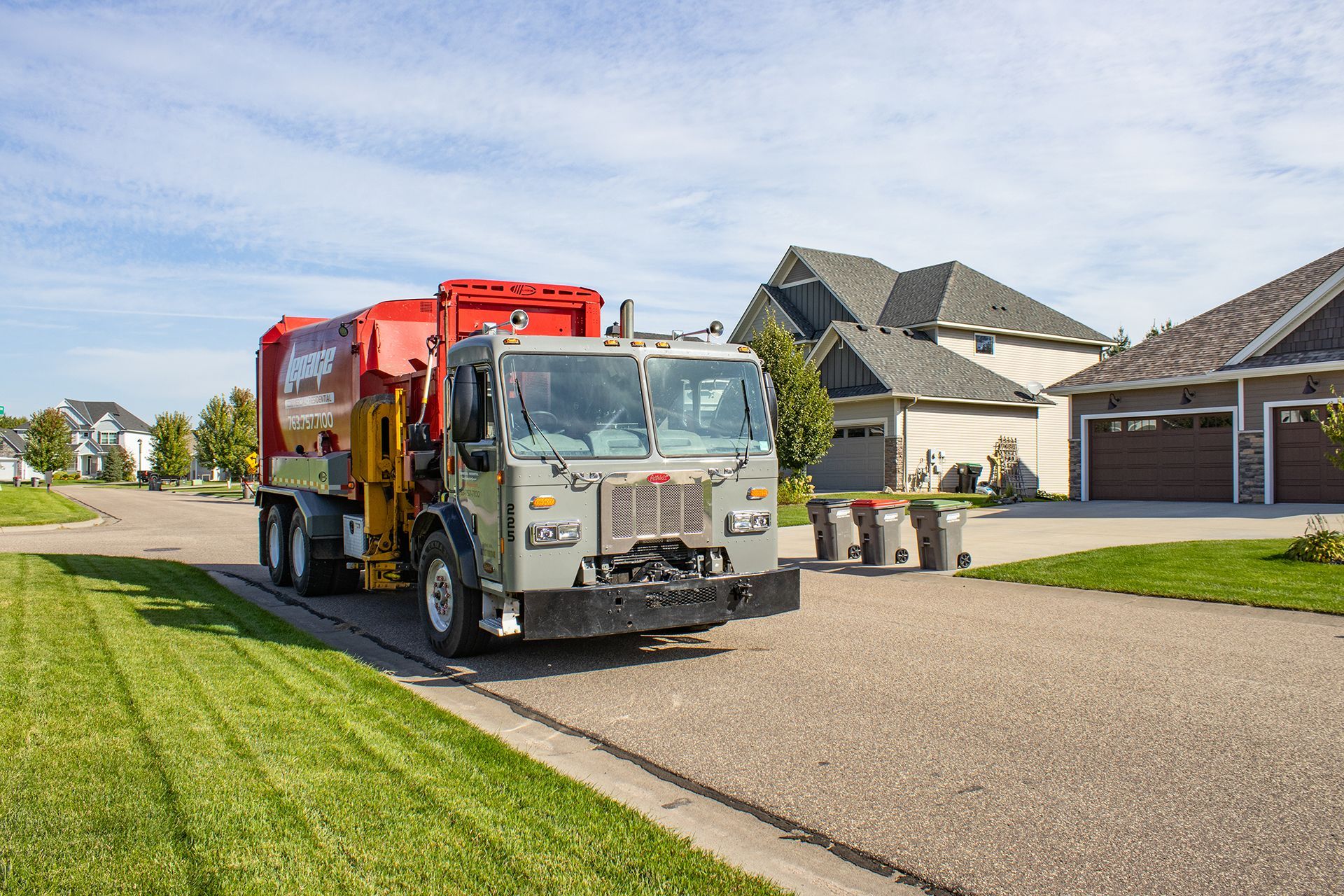

Share this article

